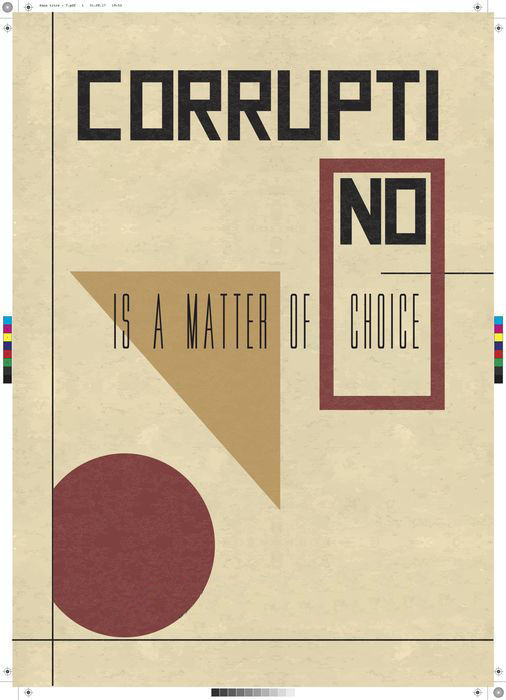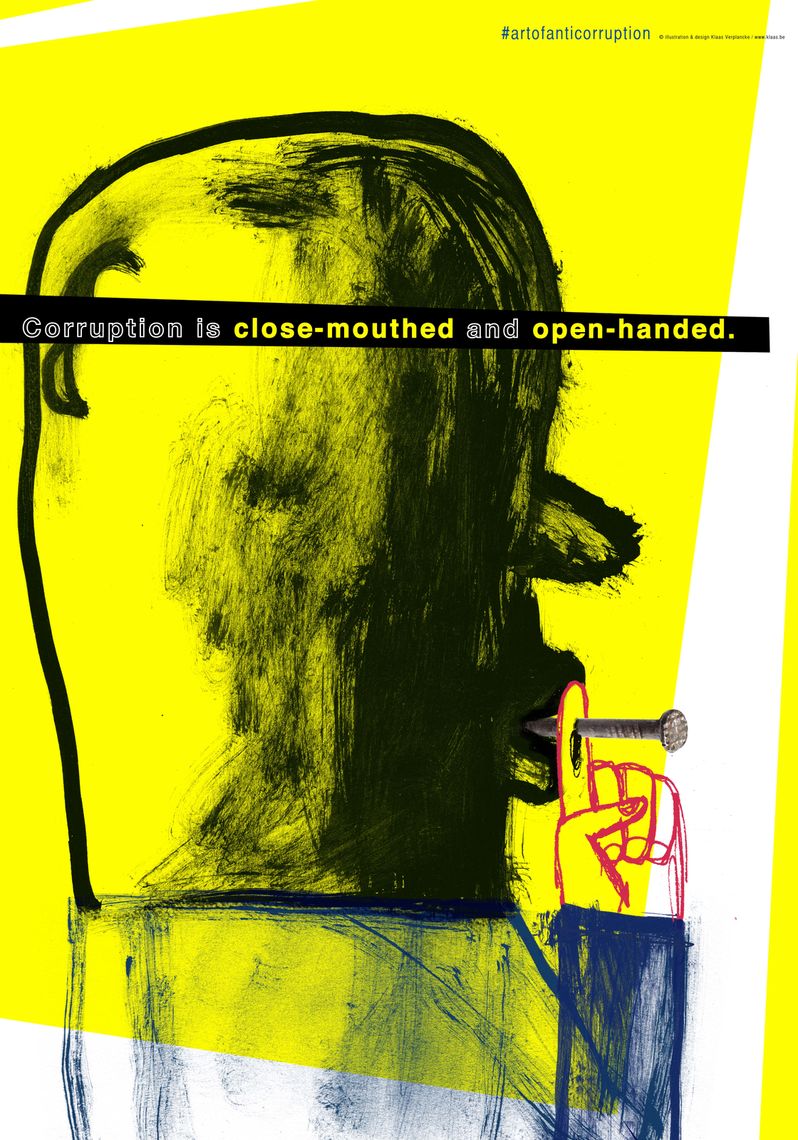Fri Mar 09 2018 · 10 min read
Between Honor and Shame: Understanding Corruption in Armenia’s Political Culture

By Nerses Kopalyan
In an uber-masculine culture that is defined by honor, loyalty, and an unabashed devotion to dignity, Armenian society extols its distinct devotion to family, brotherhood, extended relatives, and, in essence, the immediate reality that surrounds them. Armenianness, by its very disposition, is a culture that elevates familial ties, clan fidelity[1] and sacrifice for the sake of honor as idealized interpretations of what being a proper Armenian entails. That is, what Armenian culture stipulates. This culture, in the private sphere, has been immensely important in preserving a people that have, historically, been subjected to occupation, persecution, oppression, and genocide. Armenian culture, substantively, is what has preserved the Armenian identity, for its historical reality has required an inward devotion to the private sphere. The public sphere, that is, the legal-political realm, has, historically been an anathema to the Armenian world: subjected to foreign rule and foreign subjugation, Armenian culture, as a defense and survival mechanism, has required the dominance of the private sphere over the public sphere. That is, cultural precepts have defined socio-political behavior, not the laws and standards of the public sphere. Contextually, whether it was the legal realm of the Ottoman Empire, or the legal realm of Soviet Communism, Armenians have always maintained a subconscious distrust of the public sphere: simply put, our culture has embedded in our political culture an anti-systemic distrust of the public sphere.
What have been the repercussions of this for post-Soviet Armenian culture and how has this contributed to the problems in Armenia’s public sphere? More specifically, is corruption inherent to the post-Soviet Armenian political culture, and if so, does this make the political culture of Armenia incompatible with democratic values?

Poster by Thenie Khachatourov.
The Art of Anti-Corruption campaign.
There is a large body of scholarly literature, media analyses, newspaper reports, and continuous public opinion polls that confirm and then re-confirm the obvious: Armenia suffers from corruption. Most of the discourse on this topic revolves around diagnosing the various causes: the legacy of the Soviet system; the existing political system and its leadership; the oligarchs and hyper-capitalism; unqualified bureaucrats and nepotism and, of course, economic underdevelopment. All these causal indicators are quite correct, but they observe corruption in two modalities: it is a top-down phenomenon and a systemic phenomenon. The question that I want to consider here addresses corruption from the bottom-up: Is corruption a cultural problem, and one supplemented, not only by those in power, but also much of Armenian society? Since culture shapes political culture[2] Armenian society suffers from a two-tiered paradox: corruption is instituted from above, but sustained by a culture that much of society reinforces. Within this context, bottom-up corruption is ignored as being symptomatic of top-bottom corruption, but in reality, this is not entirely the case. The consequences of this are three-fold: unlike developed democracies, Armenia continues to have low levels of interpersonal trust toward state institutions;[3] this lack of trust enhances apathy and desensitization towards injustice and, since political culture is determined by how individuals think and feel about the political system, society with a civic culture inherently promotes democratic values, something that Armenia, to a large extent, lacks. Simply put, the average Armenian lacks fundamental trust in the institutions of the country: for the average Armenian citizen, the Armenian political system suffers from a crisis of legitimacy.
While top-down corruption has been extensively documented and exposed, thus offering much rigorous understanding of the shortcomings of Armenia’s political system, there remains, however, very little scholarly or analytical work that accounts for bottom-up corruption, that is, corruption inherent to the political culture of Armenia. How does the average Armenian citizen, who does not consider him or herself corrupt, willingly engage in behavior that, by all standards of democratic ethos, is fundamentally corrupt? Further, how does culture in Armenia justify and thus re-construct what does or does not constitute corruption? The contention made here is that the vast majority of Armenians do not consider their behavior as either reinforcing or partaking in systemic corruption, rather, they are simply engaging in behavior that is culturally normal and justified. To understand this phenomenon, I will address the culturally-mandated modes of social interactions that shape Armenian society, whether these interactions be economic, political, or social.
Armenian socio-cultural relations are defined by four main concepts:[4] pativ / պատիվ (best transliterated as a fusion of honor and dignity); xatr / Խաթեր[5] (an obligatory favor stipulated in familial and close social relations); amot / ամոթ (sense of shame, especially public shame), and hargank / հարգանք (respect). These concepts, inherently, are constructed, shaped, and defined by cultural mores, which are superimposed upon the very behavior of the individual. Within this context, irrespective of legal, political, or institutional considerations, these cultural standards that shape behavior supersede, morally, as what constitutes “right” or “wrong” behavior. The cultural and legal precepts here, then, become heavily separated: what is “right” or “wrong” has nothing to do with what is legal or illegal. Within Armenian society, it is culture that determines social morality, and to this end, something is right or wrong based on the cultural precepts, not on the set laws of society. Traced to its logical conclusion, this becomes quite straightforward: Just because you did something illegal does not mean you did something wrong, more so, you can actually be doing the right thing by doing something illegal. Because legality is de-prioritized as being morally empty, for it is a byproduct of state institutions that lack legitimacy and trust within the eyes of the citizen, it fails to serve as a source of moral or ethical behavior. To this end, Armenians do not equate being law-abiding with being morally righteous: The law is something that should be bypassed or avoided to the best of one’s ability, that is, there is very little public trust in the law.

Poster by Thenie Khachatourov.
The Art of Anti-Corruption campaign.
This, then, allows us to better understand why the average Armenian citizen has no compunctions with breaking the law and engaging in behavior that, in most developed democracies, would be abhorred as corrupt behavior. His or her behavior is shaped by cultural norms, not legal norms. Let us engage in an explanatory example. Socio-cultural relations in Armenia are heavily reliant on the concept of xatr/ Խաթեր, since this notion of an obligatory favor is requested by relatives and friends/associates (tsanotutsyun / ծանոթություն), is expected to be fulfilled, but then, in turn, reciprocated by all. Thus, if xatr is requested of someone, this cultural precept supersedes any legal or professional obligations that the individual is expected to abide by: if one is able to fulfill a xatr, then they are expected to do so. To refuse xatr on basis of legality would be incoherent to the average Armenian - how does one turn down a favor to a tsanot / ծանոթ? This would be incomprehensible because it is culturally mandated that xatr must be fulfilled if the individual of whom it is asked has the ability to fulfill it. This culturally mandated form of nepotism is reinforced by three concepts: hargank / հարգանք, pativ / պատիվ, and amot / ամոթ. Specifically, no person of honor and dignity, who is respected, that is, no person that has hargank and pativ, will turn down or refuse to fulfill a xatr, for to do so is deemed, itself, dishonorable and undignified, thus, one’s pativ may be called into question. Socially, this is inherently problematic, for that person would lose hargank (become unhargalits / անհարգալից): It is amot to deny a xatr, and as such, what kind of a shameless person can do this; how can such a person be unpativ / անպատիվ (dishonorable and undignified)?

Poster by Klaas Verplanke.
The Art of Anti-Corruption campaign.
Contextually, this becomes quite fascinating. Consider, for example, if one is a police officer, or a public employee, or a relatively higher-ranking public employee, or a very high-ranking employee, or a minister, or a member of parliament…I think we get the picture. Now, let us presume that any of these individuals, per the cultural norms and values that they have been raised in and live by, are approached (and they almost always are) by their tsanot / ծանոթ asking for a xatr. Per cultural norms and expectations, such individuals must prioritize xatr over their legal and ethical obligations to their profession. To deny a xatr, say as a powerful public employee, in an instance where you do have the ability to fulfill the xatr, regardless of its illegality, would be deemed morally untenable. If you have pativ, then you cannot deny the xatr that is requested from friends or relatives (tsanotutsyun / ծանոթություն), for to do so would be deemed amot. Thus, by virtue of cultural standards, which, inherently, supersede the law, you will be requested and expected to break the law in order to fulfill the requested favor. Thus, siding with the law would actually be deemed the “wrong” thing to do; the moral criteria elevates xatr, hargank, pativ, and amot over and above the law. Further, any devotion or dedication to the law, in such an instance, may actually be deemed to be unmartkayin / անմարդկային (inhumane), that is, it is inhumane to not help a friend or a relative if you are able to do so, even if this ability requires you to break the law. Simply put, one would be accused of being inhuman, shameless, and dishonorable if they place the law over favoritism to a tsanot.
These set of cultural mores fundamentally are the socially accepted and expected ways of interaction; meaning, great deal of corruption in Armenia is initiated from the bottom-up. However, in accordance to the cultural norms, such form of behavior is not considered to be a form of corruption: that is, in theory, for the sake of intellectual honesty, most will concede that it is perhaps problematic, but in practice, almost everyone will accept the fact that xatr towards friends, family, and associates (tsanotutsyun) takes priority over preserving the law. The fact that these cultural mores are embedded in the political system is a foregone conclusion. Armenia’s culture, by its very structuration, condones a political culture that is contradictory to the values and ethics of a democracy. The unique paradox, in this instance, or the unintended hypocrisy, is that most think it is acceptable for them to engage in this form of behavior, but if others do it, then it is, in fact, a form of corruption. This incoherence remains at the heart of Armenia’s cultural incompatibility with democratic values.

Poster by Klaas Verplanke.
The Art of Anti-Corruption campaign.
My contention here in no way stipulates that precepts such as xatr, pativ, hargank, amot, tsanotutsyun, etc. are inherently problematic, culturally flawed, or that these precepts need to be eradicated or rejected. To the contrary: I maintain that these precepts are extremely important to aspects of Armenian society, to the coherence and cohesion of the culture, and further, these precepts must be preserved and elevated. Within this context, I am suggesting something distinct, that is, a cogent separation: Armenian society must demarcate, separate, and draw a sharp distinction between the public sphere and the private sphere. This separation is fundamental if Armenia’s political culture stands any chance of evolving, if a civic culture is possible that promotes democratic values, and if the political system and its institutions, in the eyes of the people, have a serious chance of attaining trust and legitimacy. By separating the public sphere from the private sphere, not only will Armenia’s political culture reinforce a healthy civic culture, but also, at the same time, maintain the time-honored precepts of traditional culture. Contextually, the precepts of xatr, pativ, hargank, amot, tsanotutsyun, etc, if maintained in the private sphere, remain crucial to the cohesion of familial relations, societal interactions, and the refined etiquette of non-political society. However, when these cultural precepts cross over to the public sphere, they, inherently, negate meritocracy and professional etiquette, thus perpetuating nepotism and patronage, which, through dissemination, become systemic and widespread: that is, the exact condition in which Armenia finds itself in.
My point here, then, is absolute - the public sphere must be defined, morally and ethically, by legality. If this is not separated from the private sphere, then the cultural ethos, as extensively addressed, superimpose themselves upon the public sphere, whether in the bureaucracies of the political system, or in the business relations of the economic sector. This, I think, is evident to all: conflictual issues, in Armenia, whether it is business-related, political, monetary, or social, are almost always resolved within the cultural rules of the private sphere. Public matters are re-defined as private matters, and thus, are dealt with extra-legally, or outside of the law; that is, the legal process and the law is deprioritized to the culturally-mandated methods of resolving interpersonal, or inter-business, or inter-whatever conflicts and problems. Rarely, if ever, are such issues resolved through the correct legal channels, whether it be the courts, law enforcement, or arbitration. Rather, such issues are resolved through “sit-downs,” insertion of pseudo-criminal elements, or the interference of a powerful tsanot. As such, conflictual matters that are required to be resolved in the public sphere are, almost always, resolved in the private sphere. It is this conflation of the private sphere with the public sphere that suffocates the development of a democratic political culture.


